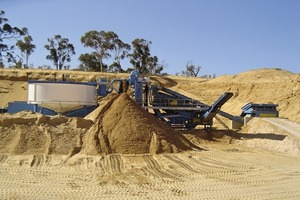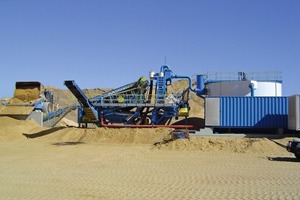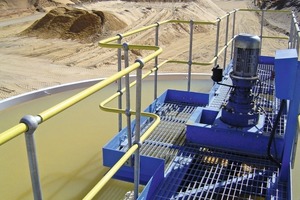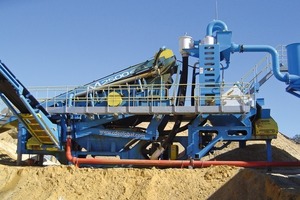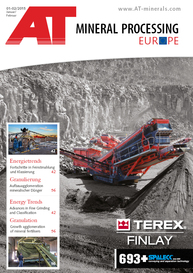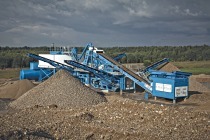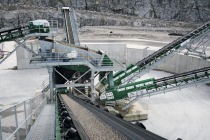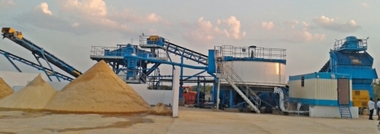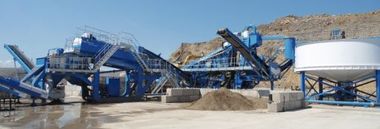1 000 000 tonnes of sand production for WA Limestone
WA Limestone is a family owned Western Australian company that has been operating for over 40 years. With a strong emphasis on customer service, WA Limestone has become one of the biggest suppliers of road construction materials and Armour rock for breakwater construction and Marine infrastructure in Western Australia, with quarries strategically located all over the Perth and Northwest area. The company’s products and services include crushed limestone to various sizes, spalls, building and construction sands, equipment hire, contract crushing, bulk earthworks, trucking hire and specialised breakwater and marina construction.
The sand and gravel plant for WA Limestone is now in its fourth year of operation having produced 1 000 000 tons of concrete sand and gravel in the first three years (Fig. 1). Since it’s installation in 2011 at their site in Perth/Western Australia, WA Limestone has had no requirement to purchase any parts or service repairs other than routine plant maintenance which in itself has generated substantial cost savings while ensuring the optimum capacity at a rate of 200 t/h.
Following a visit to bauma 2010, the company took the decision to replace their existing equipment in order to produce more consistent sand and gravel products for their own concrete plants with the aim of supplying material to construction markets throughout Perth. As a result, WA Limestone invested in an M2500 mobile washing plant and an AquaCycle thickener from materials washing specialists CDE Global (Fig. 2 and Fig. 3).
The ability of the plant to run effectively is primarily due to the durability of its design according to Sean Kerr, Engineering Manager at CDE Global. “The use of the highest quality polyurethane screen decks within the ProGrade P2-75 rinsing screen maximises plant life and offers the highest level of resistance to abrasion during the aggregate screening process”, explains Sean. He goes onto highlight the discharge position from the M2500 feed conveyor (Fig. 4) which ensure that material is delivered to the very back of the screen, maximising the available screening area. The easily replaceable modular polyurethane screen panels also reduce the time required for plant maintenance therefore increasing the plants productivity. The spraybar assembly on the ProGrade P2-75 rinsing screen is mounted independently of the screen box which in turn eliminates vibration and extends the life of the plant. The ProGrade also features a ROSTA tensioned drive unit for increased belt life and efficiency. As belts are held in constant tension they are not subjected to any shocks as the ProGrade screen rotates, also resulting in increased plant life and reduced maintenance costs.
Design features within the integrated EvoWash have also been proven to eliminate wear such as the rubber lined feedbox which not only maximises the screening area on the dewatering screen but also minimises the impact of material directly onto the screen deck, increasing operational life. Rubber lined pipework ensures maximum wear resistance to minimise the lifetime cost of ownership. The discharge chute and cyclone of the EvoWash are also rubber lined to prevent abrasion of material on steel to offer superior wear resistance.
The focus for CDE in Australia is on the development of business in the sand and gravel and crushed rock sectors as well as the growing C & D waste recycling market through the introduction of the EvoWash sand washing plant and the M2500 mobile washing plant which offers feeding, screening, sand washing and stockpiling on one single compact portable chassis.

